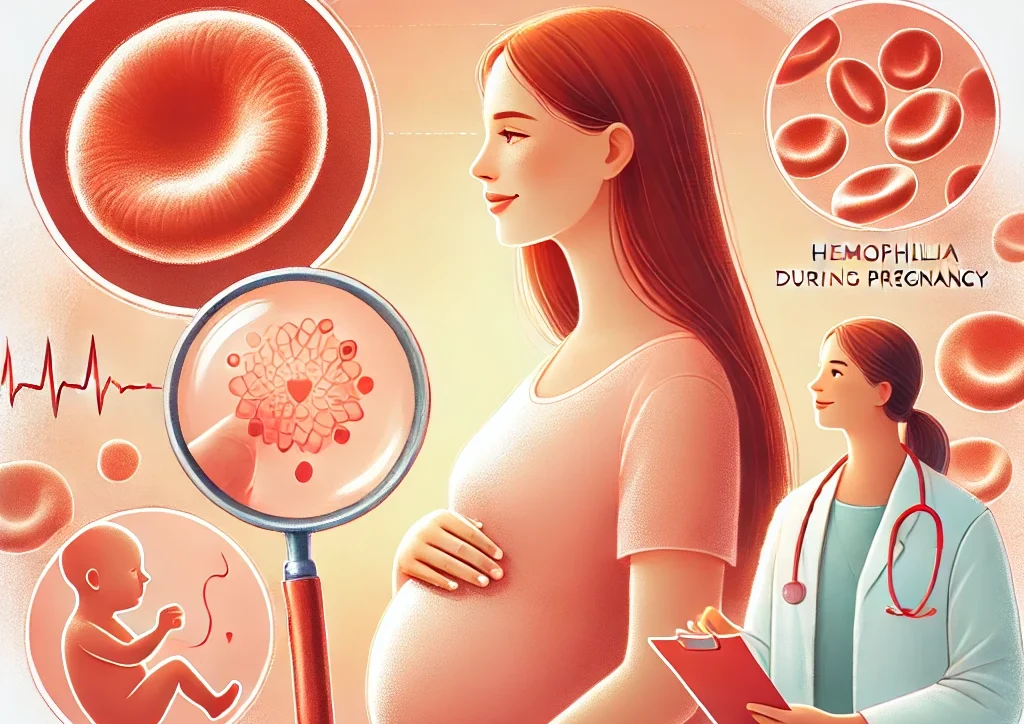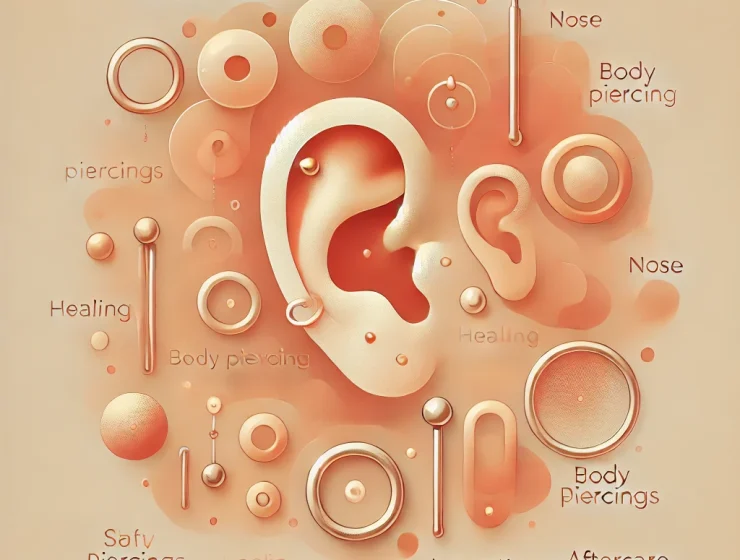Zwangerschap is een van de meest betekenisvolle ervaringen in het leven, maar voor vrouwen met hemofilie of die als drager van de aandoening zijn, brengt het ook unieke uitdagingen met zich mee. Hemofilie is een erfelijke bloedstollingsstoornis die ervoor zorgt dat het bloed niet goed stolt. Dit kan leiden tot langere en soms gevaarlijke bloedingen. Als je zwanger bent of een kinderwens hebt en te maken hebt met hemofilie, is het cruciaal om goed voorbereid te zijn. Bij Verloskundigen PuurBegin begrijpen we de zorgen rondom deze situatie en zijn we er om je te ondersteunen bij elke stap.
Wat is hemofilie?
Hemofilie is een aangeboren aandoening die het vermogen van het lichaam om bloed te stollen beïnvloedt. Dit gebeurt doordat er onvoldoende stollingsfactoren aanwezig zijn in het bloed. Er zijn twee hoofdtypen hemofilie: hemofilie A, die wordt veroorzaakt door een tekort aan stollingsfactor VIII en hemofilie B, veroorzaakt door een tekort aan stollingsfactor IX. Beide typen kunnen resulteren in ernstigere bloedingen, vooral na verwondingen, maar ook spontaan. De meeste mensen die hemofilie hebben, zijn mannen, aangezien de aandoening op het X-chromosoom ligt. Vrouwen kunnen drager zijn en soms milde symptomen vertonen. Het is belangrijk om deze aandoening goed te begrijpen, vooral bij de voorbereiding op een zwangerschap.
Kinderwens
Als je een kinderwens hebt en te maken hebt met hemofilie, is het belangrijk om goed na te denken over de implicaties van een zwangerschap. Het kan nuttig zijn om een gesprek aan te gaan met een genetisch adviseur die je kan uitleggen wat de risico’s zijn van het doorgeven van de aandoening aan je toekomstige kinderen. Denk ook na over wat het betekent om zwanger te zijn en hoe je lichaam kan reageren op de zwangerschap. Door de juiste informatie te verzamelen en goede gesprekken te hebben met gezondheidsprofessionals kun je een weloverwogen beslissing nemen. Het is cruciaal om op de hoogte te zijn van de mogelijkheden voor prenatale diagnostiek, om zo de gezondheid van zowel jou als je toekomstige kind te waarborgen.
Belangrijke punten voor het gesprek met je verloskundige/(huis)arts
Wanneer je eenmaal besluiten hebt genomen over je kinderwens, is het tijd om met je verloskundige of huisarts te praten. Het is belangrijk dat je hen vertelt over je hemofilie en dat je hen wilt informeren over je medische geschiedenis. Bespreek je verwachtingen van de zwangerschap, eventuele zorgen en hoe de zwangerschap jouw gezondheid kan beïnvloeden. Belangrijke punten om te bespreken zijn onder andere de noodzaak voor gespecialiseerde zorg, de planning van consulten en de optie voor genetische tests. Op deze manier kun je ervoor zorgen dat je goed voorbereid de zwangerschap ingaat en dat je een zorgplan hebt dat volledig gericht is op jouw specifieke situatie.
Kans dat de baby hemofilie krijgt
Een van de grootste zorgen voor vrouwen met hemofilie of die drager zijn, is de kans dat hun kind de aandoening erft. Als je een drager bent van het hemofiliegen, is er een kans van 50% dat een zoon hemofilie krijgt en dezelfde kans dat een dochter ook drager wordt. Dit benadrukt het belang van genetische begeleiding voordat je een kinderwens in vervulling laat gaan. Door prenatale testen te ondergaan, zoals een vlokkentest of vruchtwaterpunctie, kun je controleren of de baby hemofilie heeft. Het verkrijgen van deze informatie kan erg waardevol zijn om voorbereid te zijn op wat komen gaat.
Symptomen
De symptomen van hemofilie variëren van persoon tot persoon, maar vaak zijn ze minder uitgesproken bij dragers. Sommige vrouwen kunnen milde symptomen ervaren, zoals langdurige bloedingen als gevolg van verwondingen of een onverwacht blauwe plek. Tijdens de zwangerschap kunnen deze symptomen gemakkelijker opvallen, omdat je lichaam zal veranderen en je meer gevoelig kunt zijn voor bloedingen. Het is belangrijk om alert te zijn op deze symptomen en ze te melden aan je verloskundige, zodat zij een zorgplan kunnen opstellen dat rekening houdt met jouw unieke situatie.
Wat zijn de oorzaken
Hemofilie is een genetische aandoening die meestal wordt overgedragen van ouders op kinderen. Bij hemofilie A wordt het veroorzaakt door een genmutatie op het X-chromosoom, dat verantwoordelijk is voor het aanmaken van stollingsfactor VIII. Hemofilie B daarentegen is het gevolg van een mutatie van het gen dat stollingsfactor IX produceert. Beide type hemofilie zijn erfelijk; als een ouder hemofilie heeft, is er een grote kans dat het aan de kinderen wordt doorgegeven. Het begrijpen van de oorzaken en overerving van hemofilie kan je helpen om betere beslissingen te nemen ten aanzien van je kinderwens.
Zijn er risico’s?
Ja, er zijn specifieke risico’s verbonden aan zwangerschap voor vrouwen met hemofilie of die drager zijn. Een van de grootste zorgen is het risico op overmatig bloedverlies tijdens de bevalling of postpartum. Dit kan leiden tot complicaties zoals bloedarmoede, shock of andere ernstige gezondheidsproblemen. Het is daarom belangrijk om tijdens de zwangerschap goed samen te werken met een team van zorgverleners die ervaring hebben met hemofilie. Dit team kan bestaan uit je verloskundige, hematoloog en andere specialisten die ervoor kunnen zorgen dat je zwangerschap zo veilig mogelijk verloopt.
Ongesteld en hemofilie
Voor vrouwen die drager zijn van hemofilie, kan de menstruatie soms uitdagend zijn. Sommige vrouwen ervaren zwaardere menstruaties, wat het moeilijker kan maken om zwanger te worden. Dit kan ook invloed hebben op de algehele gezondheid en het emotionele welzijn. Het is belangrijk om deze ervaringen te delen met je verloskundige, zodat ze je kunnen ondersteunen en eventueel een behandelingsplan kunnen opstellen dat je welzijn bevordert.
Prenatale diagnostiek voor hemofilie
Wanneer je zwanger bent of een zwangerschapsplan hebt, is prenatale diagnostiek van cruciaal belang. Dit kan helpen om genetische informatie van de baby te krijgen en te bepalen of deze hemofilie heeft geërfd. Methoden voor prenatale diagnostiek omvatten, maar zijn niet beperkt tot, echografie, vruchtwaterpunctie en een vlokkentest (cvs). Het bespreken van de proactieve benaderingen met je verloskundige kan zorgen dat je goed voorbereid bent en de juiste beslissingen kunt nemen zodra je je kindje in de armen houdt.
Als de baby eenmaal is geboren
Na de geboorte van de baby is het van cruciaal belang om de gezondheid van je kindje zorgvuldig te controleren op tekenen van hemofilie. Pasgeborenen met hemofilie kunnen vatbaar zijn voor blauwe plekken of bloedingen, vooral na vaccinaties. Het is belangrijk om enkele dagen na de geboorte en tijdens de nazorg regelmatig contact met je verloskundige op te nemen. Vroegtijdige detectie en monitoring kunnen helpen bij het opstellen van behandelopties en zorgen voor een veilige start voor de baby.
Zwanger op natuurlijke wijze
Het is in veel gevallen mogelijk om op natuurlijke wijze zwanger te worden, zelfs als je te maken hebt met hemofilie. Desondanks is het cruciaal om zoveel mogelijk informatie in te winnen en voorbereid te zijn op mogelijke uitdagingen. Het onderhouden van een goede relatie met je zorgteam kan iemand lotter houden in het kraamproces. Aarzel niet om vragen te stellen en zorg ervoor dat je open staat voor aanbevolen begeleiding.
Behandelingen
Tijdens de zwangerschap kunnen verschillende behandelingsopties worden overwogen om het risico op bloedingen te minimaliseren. Dit kan onder meer het toedienen van stollingsfactoren omvatten. Dit soort behandelingen moet zorgvuldig en regelmatig worden gepland. Het is belangrijk om samen met je verloskundige en hematoloog de voor jou juiste behandelingsopties te bespreken zodat de zwangerschap zo soepel mogelijk verloopt.
Vaccinaties en hielprik
Na de geboorte van je baby zijn vaccinaties essentieel voor hun gezondheid. Voor baby’s met hemofilie is het echter van belang om extra voorzichtig te zijn, vooral bij vaccinaties en de hielprik. Bloedingen kunnen optreden na vaccinaties, dus het bespreken van de vaccinatieplanning met je verloskundige kan ervoor zorgen dat er geïnformeerde beslissingen worden genomen die het risico op complicaties verkleinen.
Zorg bij Verloskundigen PuurBegin
Bij Verloskundigen PuurBegin geloven we in de waarde van persoonlijke en op maat gemaakte zorg. Onze deskundige verloskundigen zijn ervaringen met hemofilie en zijn er om je te begeleiden door het gehele proces. Van de eerste zwangerschapsecho tot de bevalling en nazorg, we zijn naast je elke stap van de weg. Je kunt altijd met ons praten over je zorgen en vragen en we zijn er om je te ondersteunen met de juiste informatie en zorgplan.
Conclusie
Hemofilie en zwangerschap brengen unieke uitdagingen met zich mee, maar met de juiste voorbereiding en uitgekiende zorg hoeven deze uitdagingen niet ontmoedigend te zijn. Door tijdig te communiceren met je zorgverleners en je eigen gezondheid goed in de gaten te houden, kun je met vertrouwen deze spannende fase van je leven tegemoet gaan. Bij Verloskundigen PuurBegin staan we voor je klaar en bieden we ondersteuning op maat tijdens elke fase van je zwangerschap. Aarzel niet om je vragen met ons te delen—samen zorgen we voor een veilige en gezonde toekomst voor jou en je kindje.
Blijf op de hoogte!
Volg ons op social media voor het laatste nieuws en een kijkje achter de schermen bij Verloskundigen PuurBegin in Kampen. Ontdek de dagelijkse avonturen van onze verloskundigen, waardevolle tips voor aanstaande ouders en inspirerende verhalen uit de praktijk. Klik op de onderstaande knoppen en blijf verbonden met ons hartverwarmende team!
 |
 |
Neem zorg voor jezelf en je kleintje!
Met lieve groeten,
Verloskundigen PuurBegin
Adres: Orkestlaan 148, 8265RC Kampen
Telefoon: 085 40 19 095






